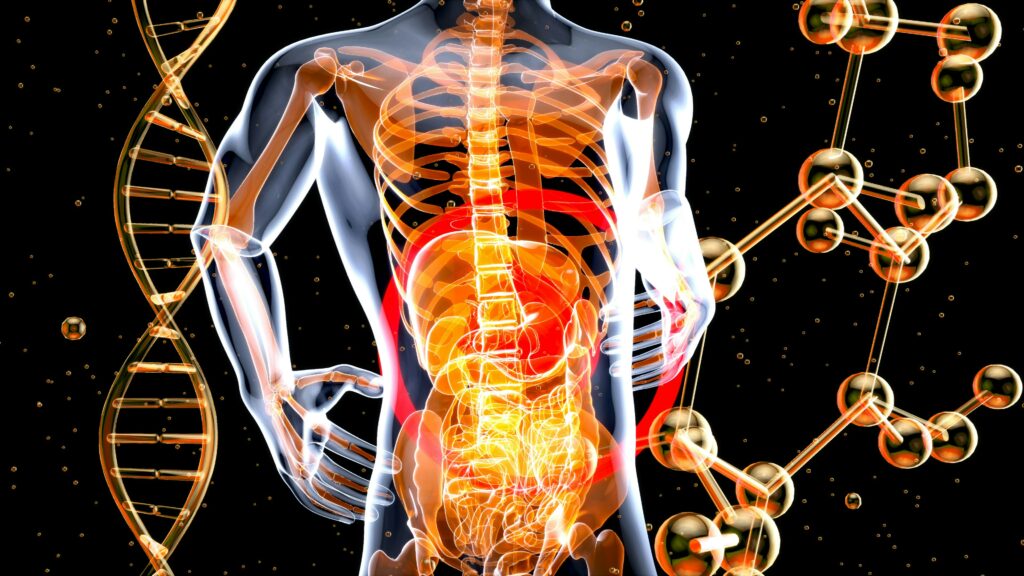- Research
Scope- Translational
Medicine- Transversal Translational Medicine (TTM)
- Translational Medicine Operations Hub (TMOH)
- Clinical Project Management Office (CPMO)
- Clinical and Epidemiological Investigation Center (CIEC)
- Luxembourg Clinical and Translational Research Centre (LCTR)
- Competence Centre for Methodology and Statistics (CCMS)
- Integrated Biobank of Luxembourg (IBBL)
- Disease Modeling & Screening Platform (DMSP)
- Luxgen Genome Center
- Research Pathology Platform (RPP)
- Research Projects & Clinical Trials
- Support Us
- Translational
News
Maternal Diet and Gut Bacteria Influence Offspring Immune Development
Research conducted by the Nutrition, Microbiome and Immunity Group sheds light on the impact of maternal fiber intake and gut bacteria on early-life immunity.
07 August 2023
3minutes

In a groundbreaking study conducted by the Nutrition, Microbiome and Immunity Group of the Department of Infection & Immunity, researchers discovered that a mother’s diet and the composition of her gut bacteria can significantly shape the immune development of her offspring. The findings, featured as a cover story in the prestigious EMBO Molecular Medicine journal, provide crucial insights into the intricate relationship between diet, gut bacteria, and early-life immune system development.
The paper focuses on how dietary fiber and a specific gut bacterium called Akkermansia muciniphila, that utilizes both milk sugars and intestinal mucus, influence immune system development in early life. Using a mouse model, the scientists examined the effects of maternal fiber intake and the presence of A. muciniphila in the gut microbiota of offspring. The results revealed that a fiber-rich diet in mothers positively influenced the microbial community and immune development of their offspring during the weaning period.
The researchers observed that the presence of A. muciniphila in the gut microbiota of offspring was associated with distinct alterations in both innate and adaptive immune cell types. Notably, the study revealed that the effects on immune cell populations were specific to the presence of A. muciniphila and varied depending on maternal fiber intake. Additionally, the researchers suggested that A. muciniphila may play a key role in driving the induction of colonic Th17 cells, which have been implicated in autoimmune diseases such as multiple sclerosis.
Our study demonstrates the significant impact of the maternal microbiome and dietary fiber intake on the postnatal development of the microbiome and immune system. These findings may have important implications for understanding immune-mediated diseases later in life
summarized Prof Dr Mahesh Desai, leader of the Nutrition, Microbiome and Immunity Group and lead researcher of the study.
The study also proposes the potential mechanisms by which maternal milk either supports or suppresses the growth of gut bacteria like A. muciniphila, depending on maternal fiber intake. These mechanisms include the production of immunoglobulins that preferentially target A. muciniphila or changes in the composition of milk sugars that differentially support A. muciniphila growth. “Understanding how maternal diet impacts milk quality and in turn the health of offspring via the microbiome is underexplored and such insights have compelling potential to be exploited for therapeutic applications,” adds Dr Erica Grant, postdoctoral fellow in the Eco-Immunology and Microbiome Group and first author of the publication.
While the study was conducted using a mouse model, the researchers believe that the findings translate into important implications regarding human health. As modern lifestyle practices such as the use of antibiotics and Western-style diets continue to perturb the delicate balance between gut microbiota and immune function, understanding the impact of maternal diet and gut bacteria on early-life immunity is becoming increasingly significant. The study holds immense translational potential to promote specific bacteria using dietary therapeutics that would help in early immune development.
The study was published as a cover story in EMBO Molecular Medicine and can be read online.







